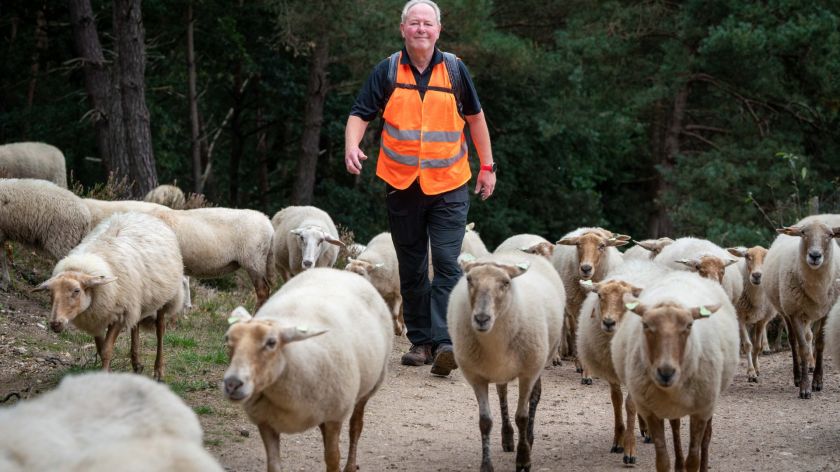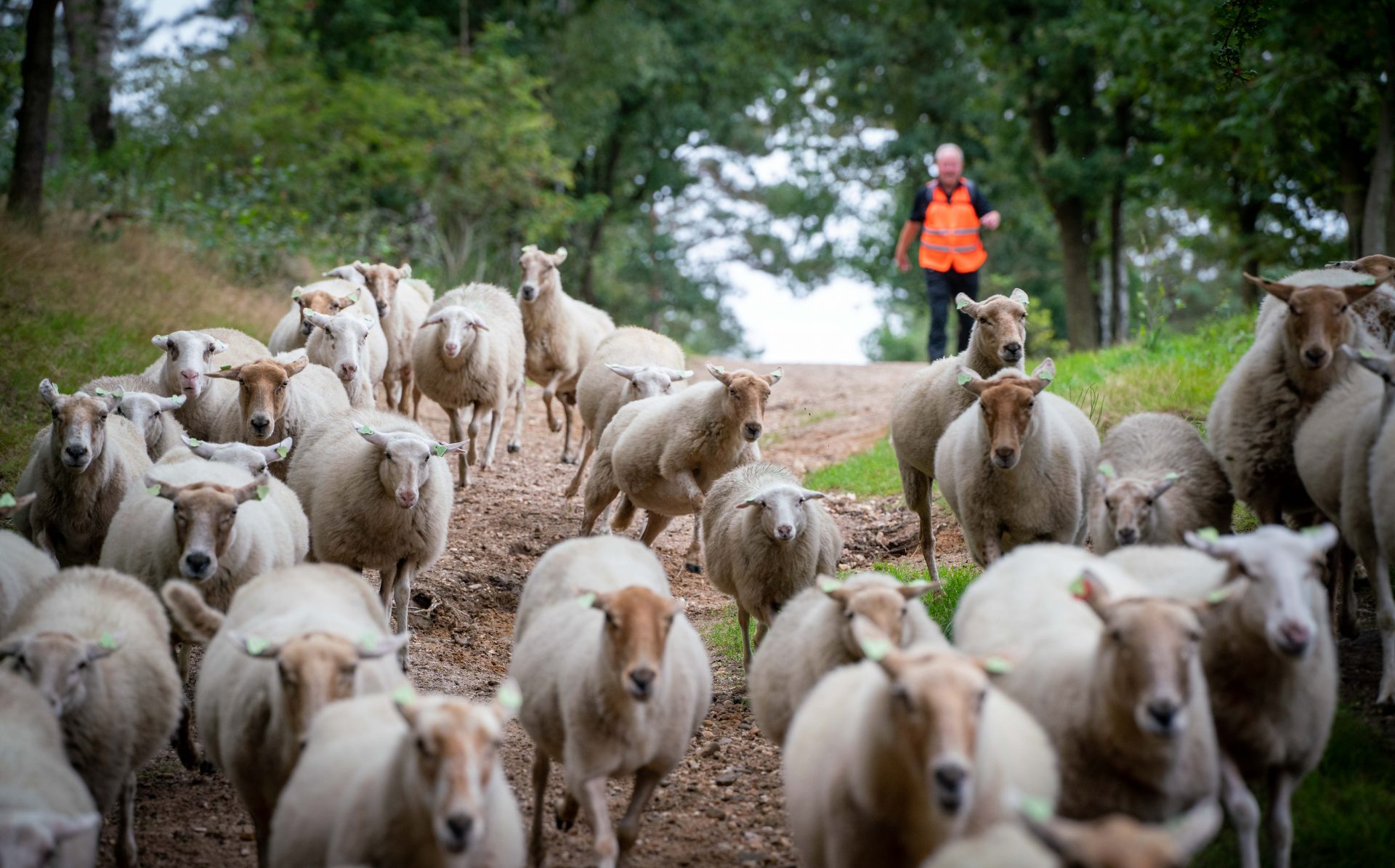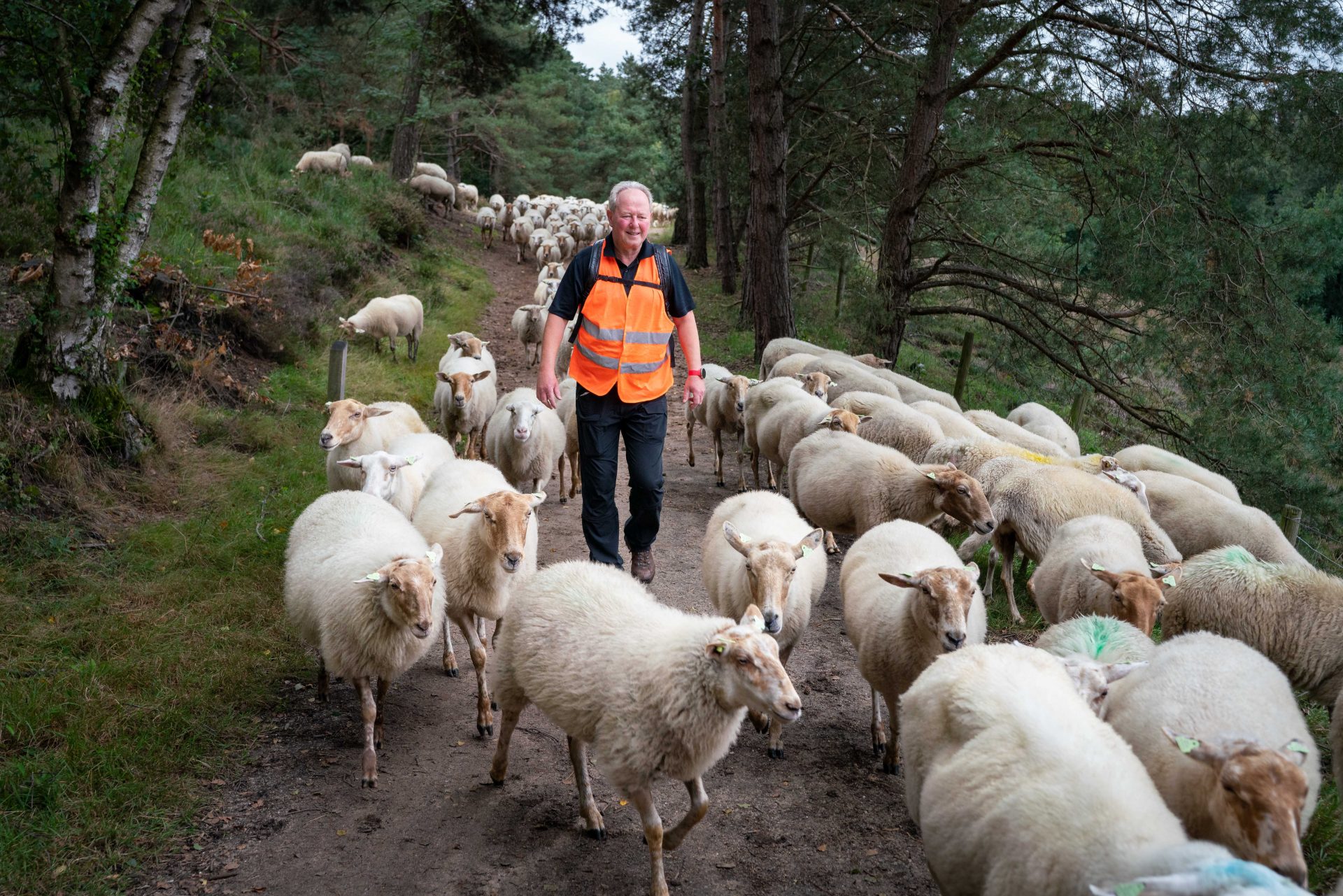Professor Peer Scheepers: ‘I’m always exhausted after a day tending sheep’
-
 Peer Scheepers tussen de schapen. Foto: Erik van 't Hullenaar
Peer Scheepers tussen de schapen. Foto: Erik van 't Hullenaar
Peer Scheepers has been with Radboud University for the past forty years, working as a methodologist and sociologist. When he saw his retirement age coming up, the professor started looking for something else to fill his time. Now he tends sheep, rather than students, one day per week.
A curious coincidence: Professor Peer Scheepers recently mapped his family tree -all the way back to 1623- and found that almost all his ancestors were shepherds. By the time he found this out, he had already been tending to his ‘own’ flock: for the past two years, Scheepers has been an assistant-shepherd tending to 250 sheep. It seems that this career move was in his DNA.
Tradition
‘I did not know at the time’, Scheepers remarks in the pouring rain on a Monday morning. ‘My father was a factory worker, but his father was a shepherd, as well as every generation before that.’ Scheepers accidentally upheld the tradition when he decided to help a friend from his student days (‘we were in the same year as Rita Verdonk’) with the heavy lifting in the field, one day per week.
‘I was done with managerial positions’
When asked about the nature of the work, Scheepers says ‘well, just now we had to help free a lamb; it had got itself caught in a bush.
Peer Scheepers is dressed in sturdy boots, a waterproof jacket, and a reflective vest; his head is covered by a red cap. With a large tread, he strides across the marshy field, heading for the tree cover along the Panovenlaan, close to campus. From here, he can almost make out his faculty office.
Food bank
Scheepers has been Professor of methods and techniques in socialscientific research since 2001; he already was a professor in Societal Prejudice by special appointment since 1994. A few years ago, he decided to cut back on his hours, and start thinking about his retirement. He wanted to do something with hands, and with fewer responsibilities; at the faculty, he has been vice dean and research director, among others. ‘I was done with managerial positions’, he says.
However, his CV got in the way of finding simple jobs. ‘I wanted to sign up to help at the food bank, but when they saw who I was, they immediately asked me to fill a board position. That was precisely what I didn’t want. I just wanted to help fill boxes of groceries.’
‘Right now, I have a nice variety of activities’
While working with the herd, Scheepers gives a wide berth to all ‘leader-like’ activities: Shepherd Paul Hezemans takes care of directing the dog and the sheep. Peer Scheepers helps maintain the greenery.
‘Sheep eat the grass down to size, but the agreements we have with our clients state that we are supposed to leave the terrain completely bare. This means that we have to cut away all the brambles and trim the trees. It’s a little bit of nature management.’
Exhausting
The herd grazes around the university, but also at Mulderskop and the Mookerheide. The animals hoof it everywhere. Then, the shepherd (and his assistant) first need to demarcate the grazing field using rollable fencing, hundreds of meters long; a big job, according to Scheepers. Then, drinking troughs for the sheep need to be filled with water.
‘I’m always exhausted after a day tending the sheep; It’s physically very tiring. That’s why I’m helping Paul. We’re both 65 years old; the job is too much for him by himself.’
The professor will be giving his farewell lecture towards the end of September, but afterwards he will keep working at the university two days per week in his capacity as emeritus professor. He will also retain his work as a member of the State Committee against Racism and Discrimination, which was set up by the government following the benefits affair. Together with nine other professors of various disciplines, Scheepers works out how Dutch laws should be adapted to counteract racism and discrimination within government and other organisations.
‘The committee work is only one day per week’, he says. ‘It came at a perfect time: now I have a nice variety of activities.’ And of course, there is even time left to babysit his grandkids.
Herd animals
As he’s talking, one of the sheep nudges his leg. Immediately a line of sheep forms who want to do the same. ‘They’re called herd animals for a reason’, Scheepers chuckles.
Scheepers does not see a lot of parallels between his work as a scientist and that as an assistant shepherd; exactly as intended, he notes with satisfaction. The herd does have two black sheep in the mix, but so far Scheepers has not detected any sign of discrimination.
Peer Scheepers graduated as a methodologist in Nijmegen in 1984. He then obtained a PhD in ethnocentrism among the Dutch. ‘During my studies, I had side jobs in factories, and I witnessed discriminatory practices with my own eyes’, he says. As a sociologist, he spent his career engaging with themes of racism and the exclusion of minority groups, as well as social cohesion in general.
His farewell lecture, scheduled for Friday, September 29th, will discuss the shifting attitudes towards newcomers in the Netherlands. ‘The climate has mellowed somewhat’, he hints. ‘Nowadays, we have more compassion and more respect for other groups.’





